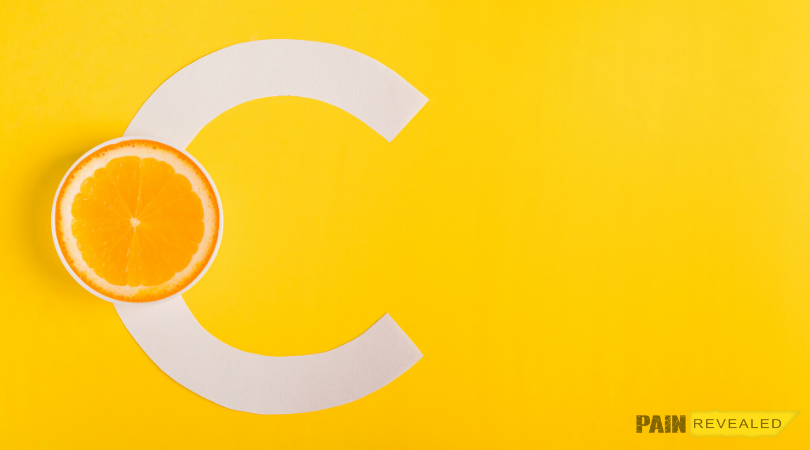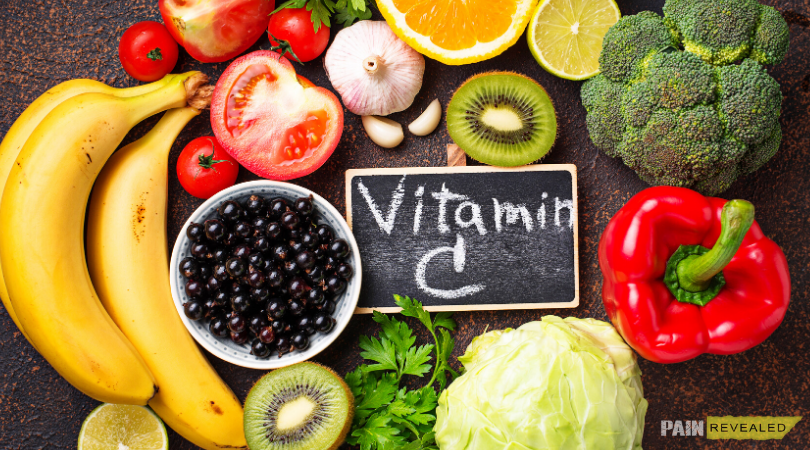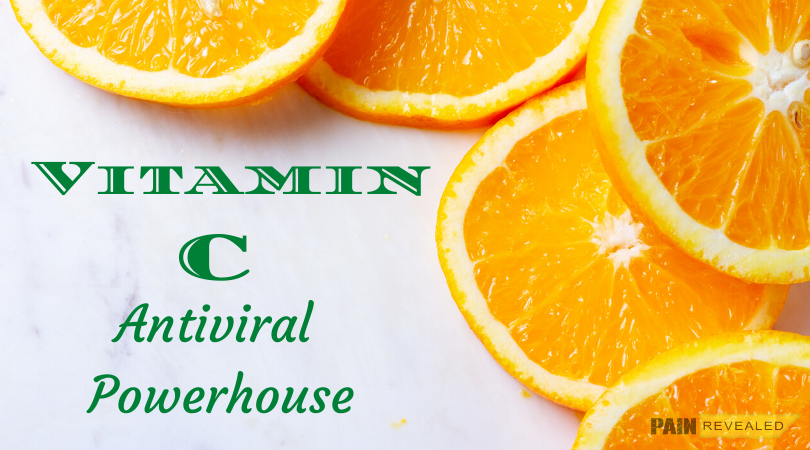The coronavirus is all over the news and on everyone’s mind these days. Of special concern for higher risk are people over 60, and those suffering from other chronic health conditions.
This means that the current outbreak is of special consideration to the Pain Revealed community. Thankfully, therapeutic doses of vitamin C safely offer a significant immune boost just when we need it most.

As the virus makes its way around the globe and the United States is experiencing a spike in cases, we are all considering steps we need to take to fortify our immune systems and stay as healthy as possible.
From the start, it must be made clear that Vitamin C is not being put forward as a guaranteed prevention or cure for COVID-19, more commonly known as Coronavirus. Nor should it replace or preclude recommendations from your healthcare practitioner.
From the World of Research
That being said, there is a copious amount of research that supports the value of Vitamin C as a healthful antioxidant, and its role in healthcare as an antiviral. Vitamin C is safe within dosing limits, readily available as a supplement and through diet, and should be a part of everyone’s arsenal as we seek to strengthen our immune systems in the face of the COVID-19 outbreak that is making its way around the globe.

So compelling is the research supporting Vitamin C in the fight against viruses, that the Chinese are currently conducting clinical trials of intravenous Vitamin C in COVID-19 patients. Their research is being coordinated with the Medical and Scientific Advisory Board to the International Intravenous Vitamin C China Epidemic Medical Support Team based at Kansas University Medical School.
The Board’s Director is Richard Z. Cheng, MD, Ph.D., who states,
“Early and sufficiently large doses of intravenous vitamin C are critical. Vitamin C is not only a prototypical antioxidant, but also involved in virus killing and prevention of viral replication.” [1]
Dr. Cheng is calling for worldwide discussion and debate on the therapeutic value of Vitamin C for the treatment of COVID-19 and other viruses.
Results are still pending from these studies, but where does the confidence come from that is fueling research into Vitamin C as a therapeutic option?
According to the Linus Pauling Institute (named for the Nobel Prize-winning scientist known for revolutionary Vitamin C research) at the University of Oregon, Vitamin C promotes the production of leukocytes – the powerhouse family of white blood cells that are the front-line soldiers of the human immune system. Further, through its antioxidant properties, the vitamin protects these leukocytes from oxidative damage.
Because the body employs increased amounts of Vitamin C in these processes, it benefits when dosages are boosted during the course of fighting an illness and maintaining adequate immune response. Further, regular dosages of the vitamin while healthy can assist the body to maintain readiness for exposure to viral pathogens.
The Institute also reports that Vitamin C is readily absorbable in doses of up to 200mg at a time. Its safety is established in dosages of up to 10g per day, while 2g is considered an upper level dose at which the average person does not experience gastric distress from the vitamin. [2]

There has been extensive research on Vitamin C and its effect on the immune system’s battle against viruses – too much to attempt to summarize here. Further, the power of Vitamin C to fight the common cold has been studied more than any other viral infection, and may serve as a template about the vitamin’s benefits in fighting other viruses.
Dr. Harri Hemilä from the University of Helsinki, Finland, conducted two randomized placebo-controlled clinical trials on the therapeutic value of Vitamin C in the fight against seasonal cold viruses, and concluded,
“Given the consistent effect of vitamin C on the duration of colds, and its safety and low cost, it would be worthwhile for individual common cold patients to test whether therapeutic 8 g/day vitamin C is beneficial for them. Self-dosing of vitamin C must be started as soon as possible after the onset of common cold symptoms to be most effective.” [3]
In a review published in the European Journal of Microbiology and Immunology, the authors compiled evidence of the antimicrobial effectiveness of Vitamin C as documented in numerous studies. They state that,
“Vitamin C possesses potent antimicrobial properties reducing pathogenicity of bacteria, viruses, parasites, and fungi… Given its anti-infectious and immunomodulatory properties on one side and the lack of unwanted side effects on the other, vitamin C constitutes a promising antibiotic-independent strategy…” [4]
Getting Vitamin C from Foods
The human body does not produce Vitamin C on its own, and it is essential to get it from supplements or diet – preferably both. Boosting the vitamin in your diet is always a good idea, and a great habit to have in any cold and flu season. Foods high in the vitamin to include in your daily dietary rotation are:
- Broccoli
- Cantaloupe
- Cauliflower
- Oranges and other citrus
- Papaya
- Kale
- Kiwi
- Sweet potato
- Peppers
- Strawberries
- Tomatoes
- Brussels Sprouts

Talk to your Healthcare Provider
Discuss with your healthcare practitioner the benefits of taking supplemental Vitamin C to boost your immune system, especially if you are taking any other medications or experiencing other medical conditions. They will assist you in choosing an optimal dosage and form of this essential vitamin.

